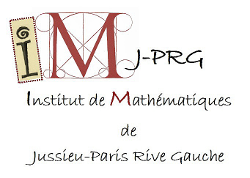| Résume | One of the basic problems in Ergodic Theory is to determine when
two measure-preserving actions of a group on the atomless Borel probability
space are orbit equivalent. When the group is amenable, classical results of
Dye and Ornstein-Weiss show that any two such actions are orbit equivalent.
Thus, the question is relevant only in the non-amenable case. In joint work
with Martino Lupini, we showed that for every nonamenable countable discrete
group, the relations of conjugacy and orbit equivalence of free ergodic actions
are not Borel, thereby answering questions of Kechris. This means that there
is in general no method, or uniform procedure, that allows us to determine
when two actions of a nonamenable group are conjugate/orbit equivalent. It is
a non-classification result, which rules out the existence of any classification
theorems which use "nice" (Borel) invariants.
The statement about conjugacy also solves the nonamenable case of Halmos'
conjugacy problem in Ergodic Theory, originally posed in 1956 for ergodic
transformations. The main conceptual innovation is the notion of property (T)
for triples of groups, for which a cocycle superrigidity theorem à la Popa can be
established. In combination with induction methods developed by Epstein, this
is used to obtain a large family of free ergodic actions of the given nonamenable
group which have pairwise distinct 1-cohomology groups. |


